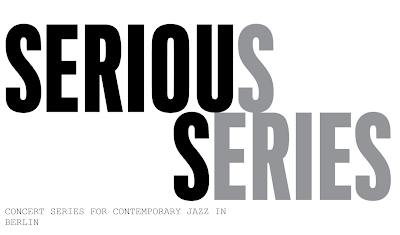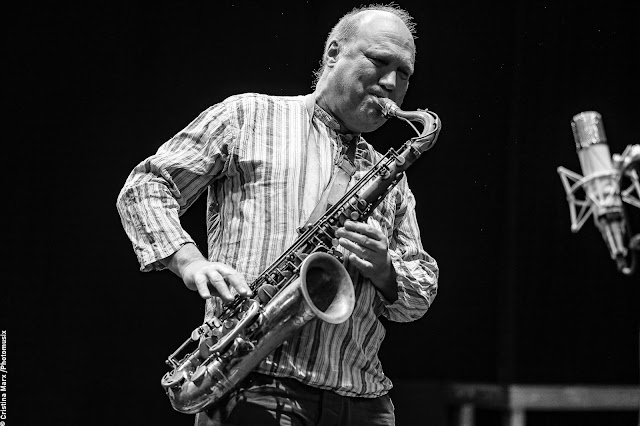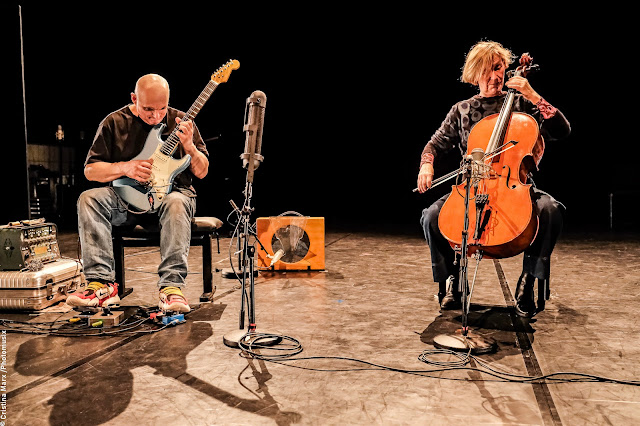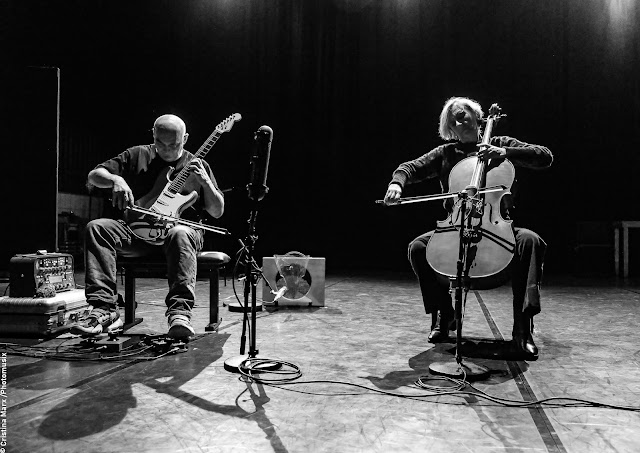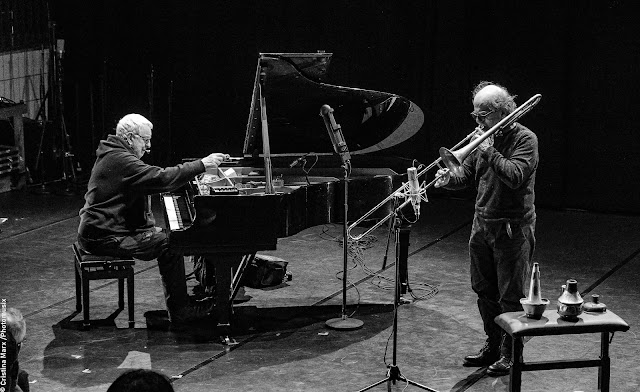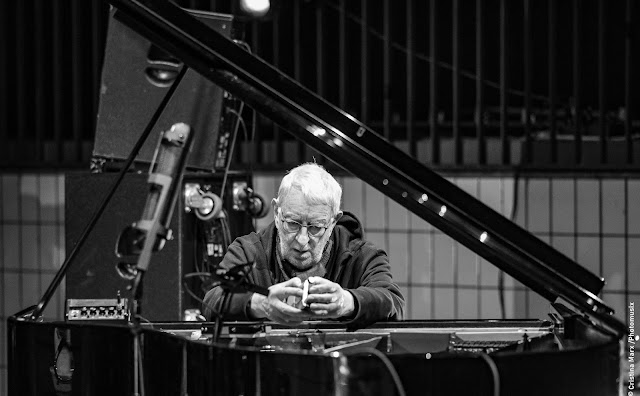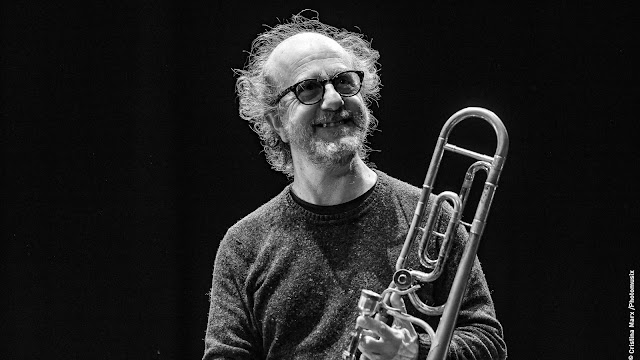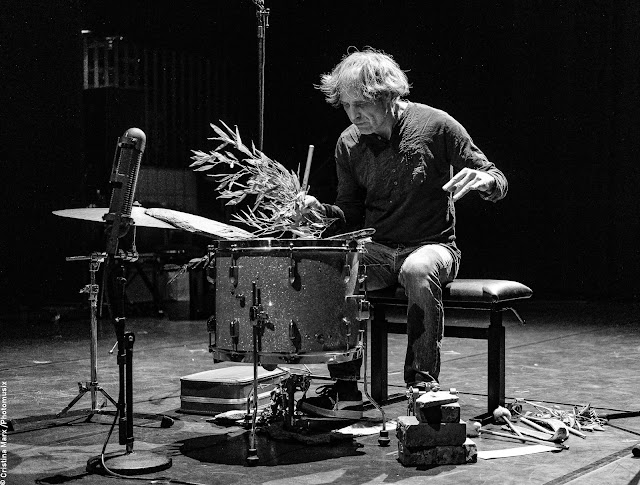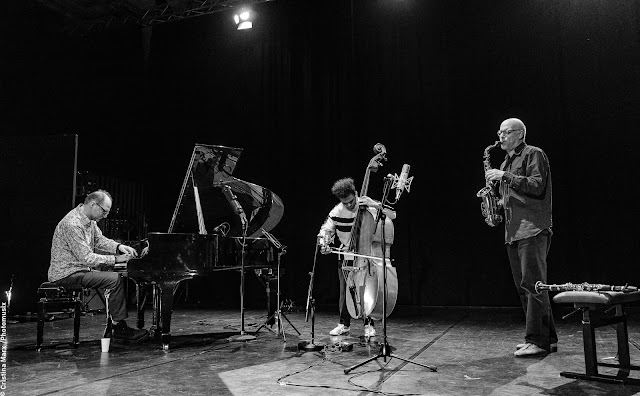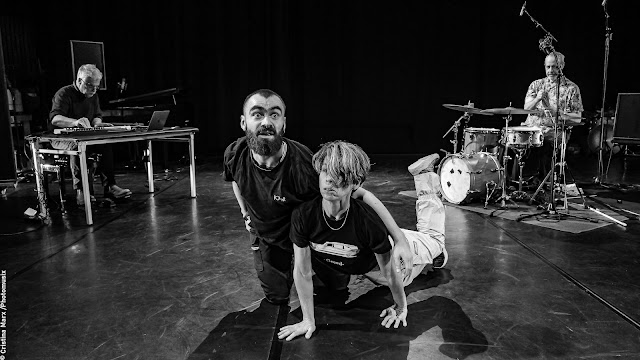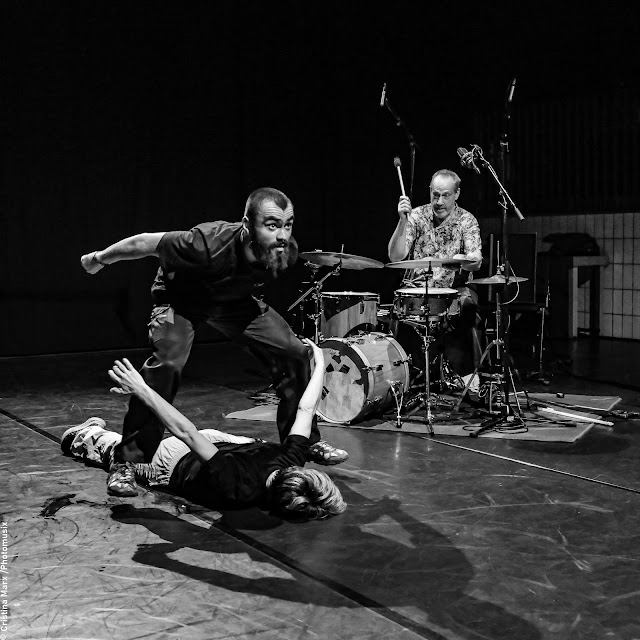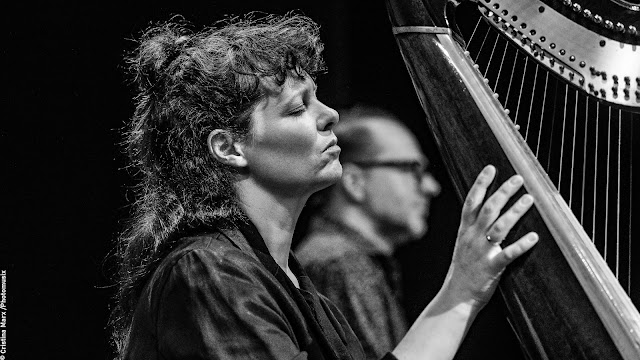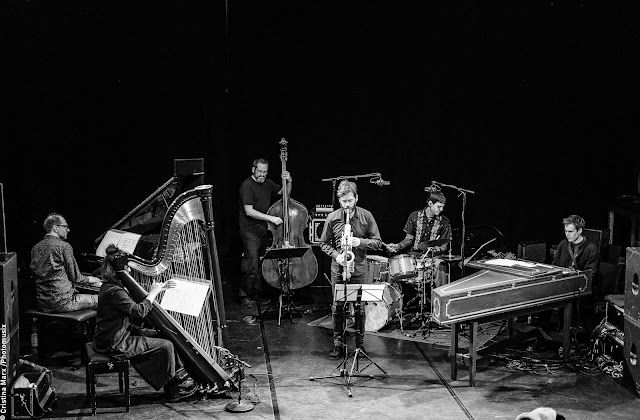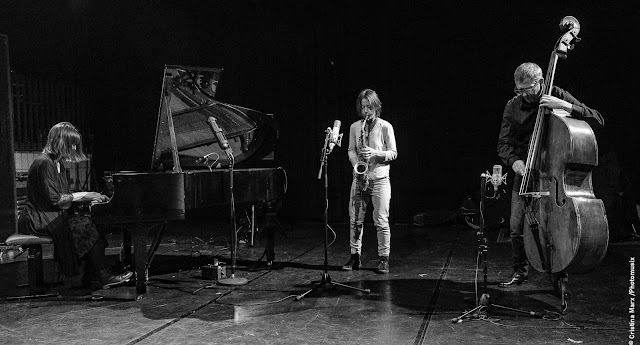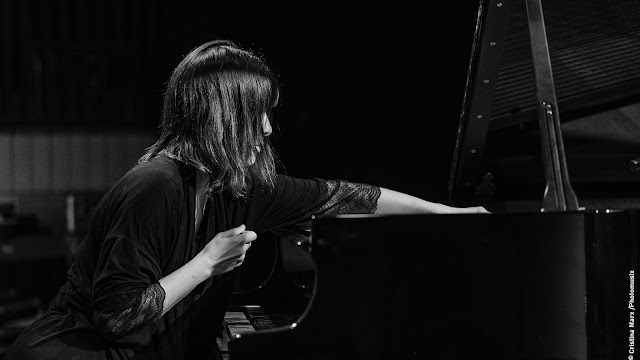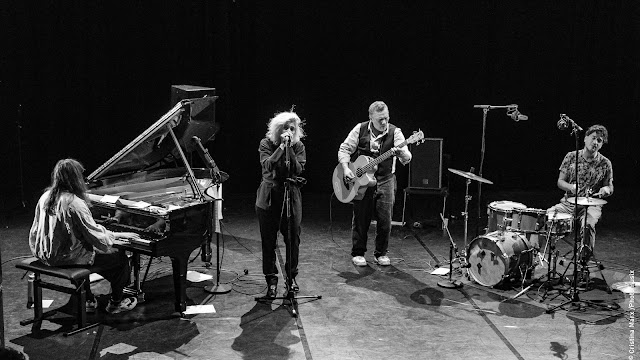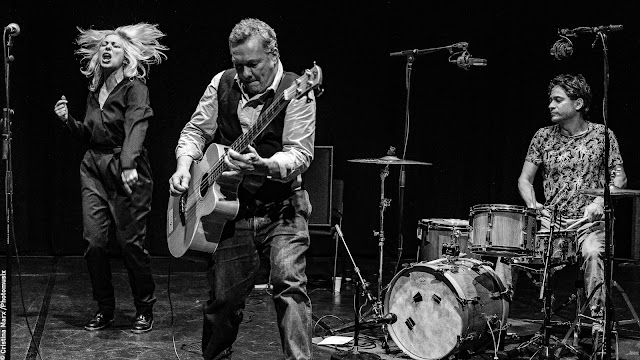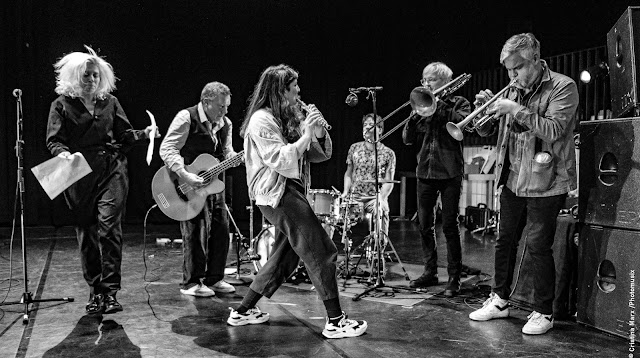FRIDAY, DECEMBER 15
SATURDAY, DECEMBER 16
Starting with a quiet but quickly moving
improvisation, Kaufmann offered some sparse chords while Moore added a
gentle melody with some slight dissonant moments over Dunston’s deep,
walking groove. The group’s music fell somewhere on the “jazzier” side of the spectrum without landing in anything routine or staid. Next, the group engaged in an experimental exchange with Moore getting edgier and Dunston going beyond the strings
with his bow. Playing with songs from Herbie Nichols mixed with
compositions from Kaufmann and Moore, the music was seamlessly connected by buzzing freely
improvised passages.
Drummer Michael Vatcher‘s project with electronics and dancers provided an exciting ending to the night. Taught interplay between Vatcher at the drum kit and Richard Barrett and his self built electronics provided a percolating soundscape for the two dancers, Liat Waysbort and Balder Hansen, to move fluidly around – and under – the musicians. Perhaps the most unusual moments, aside from some surprisingly agile movements from the dancers, was a dynamic exchange between Barrett’s electronics and Vatcher playing a saw.

